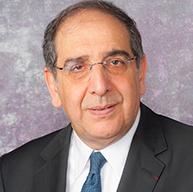
The Henry L. Hillman Foundation recently announced a $25 million gift to the University of Pittsburgh. In all, $20 million of the gift will fund vision care research and development through The Eye & Ear Foundation, which supports Pitt’s Departments of Ophthalmology and Otolaryngology by advancing leading-edge academics and research to enhance patient care. As a result of the gift, The Eye & Ear Foundation has passed the halfway point in its campaign to support vision restoration breakthroughs, advance technologies and therapies addressing vision loss, lower barriers to healthcare for all Pittsburghers, and fuel the growth of the city’s burgeoning biotech sector. The gift will, among other efforts, improve access to vision care for underserved communities through outreach and direct care; help build and staff a vision “street lab” to test new treatments and therapies in safe, controlled, virtual and real-life environments; and support research into breakthrough programs such as biomedical solutions to corneal blindness. The gift will also fund commercialization efforts and will, in turn, create job and training opportunities for adjacent neighborhoods and the city with an emphasis on promoting equitable access to services and employment.
McGowan Institute for Regenerative Medicine affiliated faculty member José‐Alain Sahel, MD, who came to Pitt in 2016 from Paris’ Institut de la Vision at Sorbonne University to direct Pitt’s Department of Ophthalmology, will lead the vision work made possible by the Henry L. Hillman Foundation gift. Dr. Sahel is the Chair and Distinguished Professor of the Department of Ophthalmology at the University of Pittsburgh School of Medicine, director of the UPMC Eye Center, and the Eye and Ear Foundation Endowed Chair of Ophthalmology.
“We are driven by helping patients,” Dr. Sahel said. “It starts with identifying conditions among patients, which flows into using research to find solutions, creating new therapies and devices, commercializing those advancements and ultimately bringing them back to the patient by enabling access to everyone.”
“No one person can do this,” he added. “It takes teams of clinicians, scientists, educators, rehabilitation experts and patients themselves all looking at questions that have not been solved. Only then can you develop answers.”
Vision degeneration affects nearly everyone in one form or another as they age, and the number of individuals with visual impairments is expected to triple by 2050. Pittsburgh, with its aging population, will be highly affected by this epidemic of vision loss. Finding cures for the most common eye ailments and solutions to rare diseases and impairment due to injury are equally important, Dr. Sahel said. His teams are working on nearly every aspect of blindness, from common conditions such as glaucoma and macular degeneration to regenerative therapies and engineering artificial retinas and the hardware and software that feeds them information.
Further supporting an equitable regional economy, the Hillman gift includes funding for vision-related workforce development—training local residents to fill jobs created by the overall project. It also provides seed funding for breakthrough research with high potential for commercialization and emerging startups working in the sector.
Along with the vision-focused work, $1 million of the gift will support further life sciences planning under the direction of Anantha Shekhar, MD, PhD, senior vice chancellor for the health sciences and John and Gertrude Petersen Dean of the School of Medicine at the University of Pittsburgh. Another $3 million is allocated to supporting the LifeX startup accelerator, and $1 million will go to vaccine research.
Read more…
